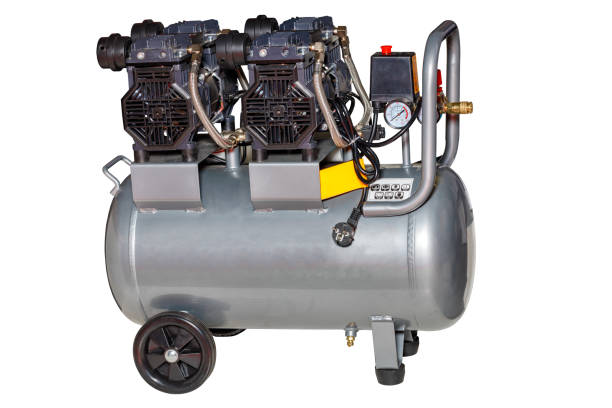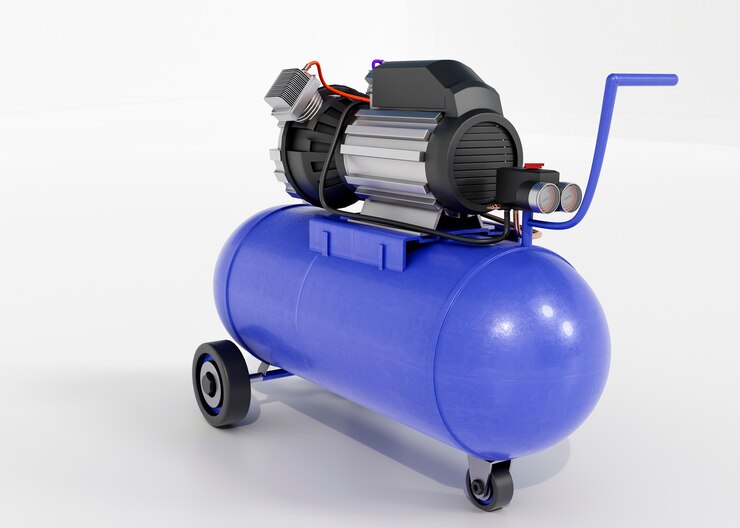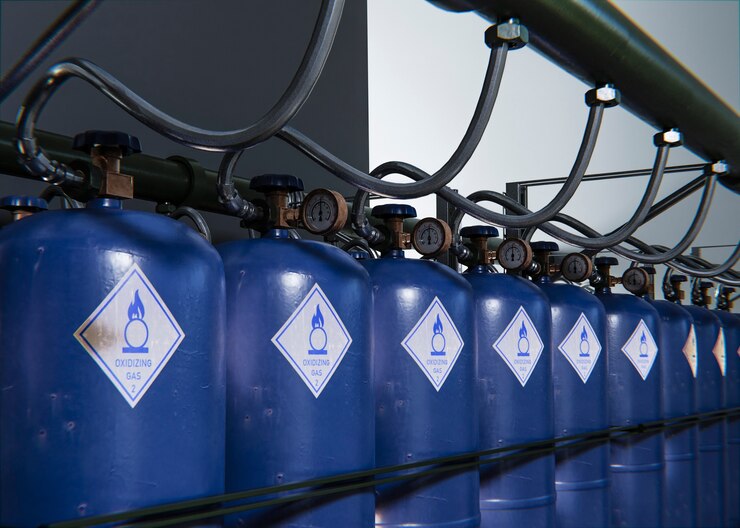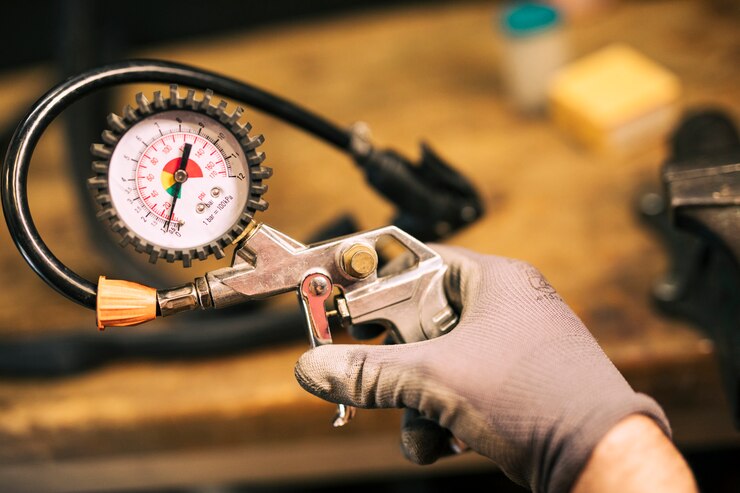Chlorine Screw Compressor: Powering the Chlor-Alkali Industry
The Essential Guide to Chlorine Screw Compressor: Powering the Chlor-Alkali Industry
In the crucial industry of chlor-alkali, which produces lye and other necessary chemicals like chlorine, chlorine screw compressor is indispensable. These compressors are a specialized and essential piece of machinery because they effectively manage chlorine gas, a caustic and dangerous substance.
This thorough manual delves deeply into the realm of these screw compressors, examining their parts, uses, and safety precautions. You may choose and maintain this strong equipment with knowledge if you are aware of these factors.
Chlorine Screw Compressors: The Workhorses of Chlorine Production
In the chlor-alkali business, screw compressors that can effectively handle dangerous chlorine gas are essential. They do well in two crucial areas:
- Chlorine Gas Compression:
They make it possible for chlorine gas to be stored in pressured containers and transported safely through pipes for a variety of industrial uses by raising the pressure.
- Chlorine Liquefaction:
By lowering the temperature and applying more pressure, these compressors may turn chlorine gas into a liquid form, which has benefits for both transportation and storage.
The intermeshing rotors of these compressors revolve inside a sealed container. The confined gas volume reduces with the rotation of the rotors, compressing and increasing the pressure of the chlorine gas. Adjusting the rotating speed and sliding valves are two examples of capacity control systems that enable precise adjustment of the pressure output and flow rate.
Fine-Tuning Performance: Capacity Control in Chlorine Screw Compressors:
Since the need for chlorine production varies often, chlorine screw compressor has output regulation mechanisms built right in. These guarantee peak efficiency and performance under varied operating circumstances. Let’s examine two crucial approaches:
- Slide Valve Control:
This method controls the amount of chlorine gas that enters the compressor by functioning as a dam. Operators can regulate the flow rate and, in turn, the pressure output by changing the valve position. This enables prompt modifications in response to current requirements.
- Rotational Speed Control:
This technique adjusts the compressor’s motor speed to optimize performance. Pressure output decreases when the speed is decreased because less chlorine gas enters the system at a lower flow rate. This allows for more accurate yet progressive capacity management.
Operators can optimize energy use and get the required compression of chlorine gas by combining these strategies. Because of its adaptability, the chlorine screw compressor is a dependable and effective option for the chlor-alkali sector.
Essential Components of Screw Compressors:
Because chlorine gas is poisonous and caustic, it poses special difficulties for machinery. These screw compressors need specific parts built for longevity, effectiveness, and safety to meet these demands. Let’s examine a few crucial elements in more detail:
- Concentrated Sulfuric Acid Seal:
Chlorine screw compressors use concentrated sulfuric acid as a sealing agent as opposed to traditional oil-based lubrication. By doing this, gas leakage between the housing and the rotors is prevented, which is essential for preserving pressure and avoiding chlorine escape.
- Ceramic Mechanical Seals:
The corrosive qualities of chlorine would be too much for standard mechanical seals to withstand. Ceramic seals are used in chlorine screw compressors because they provide superior resistance to chemical degradation and long-lasting operation.
- TFE/Ceramic V-rings:
These V-shaped rings are essential for sealing since they are made of Teflon (TFE) coated in ceramic. TFE provides superior resistance to chemicals, and the ceramic coating improves wear resistance and mechanical strength. This mixture offers a trustworthy defence against leaks and harm from chlorine.
- Bypass Filtration System:
Over time, contaminants such as iron sulfide can build up in the sulfuric acid seal liquid, reducing its efficacy. By regularly cleaning the seal liquid with a bypass filtering system, these impurities are eliminated, guaranteeing the sealing mechanism operates at its best.
Together, these specialist parts form a strong system that can handle chlorine gas effectively and securely. To preserve the integrity of these parts and guarantee the safe functioning of chlorine screw compressors, routine maintenance and appropriate material selection are essential.
The Powerhouse of Chlorine Production: Applications of Chlorine Screw Compressors:
The main player in the chlor-alkali business, these screw compressors are essential to the many phases of chlorine manufacturing and application. A summary of their main uses is as follows:
- The Backbone of Chlorine Production:
The Main Product of the Chlor-Alkali Process is Chlorine Gas, which is the foundation of chlorine production. The use of chlorine screw compressors occurs when:
- Compressing Chlorine Gas:
By greatly raising the gas’s pressure, they make it possible for it to be transported through pipes to different industrial locations securely and effectively.
- Chlorine Liquefaction:
These screw compressors can further compress and cool the gas, turning it into liquid chlorine for certain uses. Because of its increased density, liquid chlorine has benefits when it comes to transportation and storage.
- Ensuring Effective Chlorine Transportation:
Chlorine gas must go to its intended location when it is created. Chlorine screw compressors keep pipes at the necessary pressure, allowing this essential industrial gas to be transported over great distances safely and continuously.
- Encouraging Chlorine Storage:
Pressurized containers are used to store compressed chlorine gas for later use. To pressurize these containers and provide a ready supply of chlorine for a range of industrial uses, chlorine screw compressors are essential.

The Chlorine Production Powerhouse:
Although chlorine screw compressor is industry leaders in the chlor-alkali sector, they can also handle other hazardous gases with comparable characteristics. Nonetheless, to guarantee safe and dependable operation for these applications, cautious material selection and close attention to safety procedures are necessary.
Safety Considerations for Chlorine Screw Compressors
Chlorine gas is an extremely dangerous and deadly gas. Because of this, using and managing these screw compressors calls for stringent safety procedures. Here are some crucial things to remember:
- Employee Education:
Operators of screw compressors that produce chlorine must get in-depth instruction on safe handling practices, emergency response procedures, and personal protective equipment (PPE).
- Leak Detection and Monitoring Systems:
It’s critical to keep an eye out for any chlorine leakage. In the event of a leak, these systems need to sound an alert and initiate safety precautions.
- Frequent Maintenance:
For the compressor to operate safely and dependably, scheduled maintenance is essential. This includes checking the seals and maintaining the filtration system.
- Regulation Compliance:
Establishments using chlorine screw compressors are required to follow pertinent safety guidelines set out by agencies such as the Occupational Safety and Health Administration (OSHA) in the United States.
See our guide on Safe Handling of Chlorine Gas for a thorough rundown of safety procedures while handling the gas.
Advantages of Chlorine Screw Compressor Technology
These screw compressors are the go-to option in the chlor-alkali sector because of several benefits:
- Oil-Free Operation:
By not using any oil, the compressed chlorine gas is guaranteed to be pure and there is no chance of contamination.
- High Efficiency:
The high efficiency of contemporary screw compressors translates into reduced energy usage and operating expenses.
- Dependable Performance:
These compressors are renowned for their sturdy construction and dependable performance, which reduces maintenance requirements and downtime.
- Capacity Control:
Optimal performance under a range of operating situations is made possible by the capacity adjustment capabilities provided by rotational speed control and sliding valves.
Conclusion:
Get in touch with LEIYAO Compressor right now for a complete chlorine screw compressor solution designed to meet your unique requirements. We are dedicated to being your trustworthy business partner in the chlor-alkali sector. With our qualities as a dependable partner and stressing the significance of these compressors, this conclusion provides a clear call to action encouraging prospective clients to get in touch with your business.



